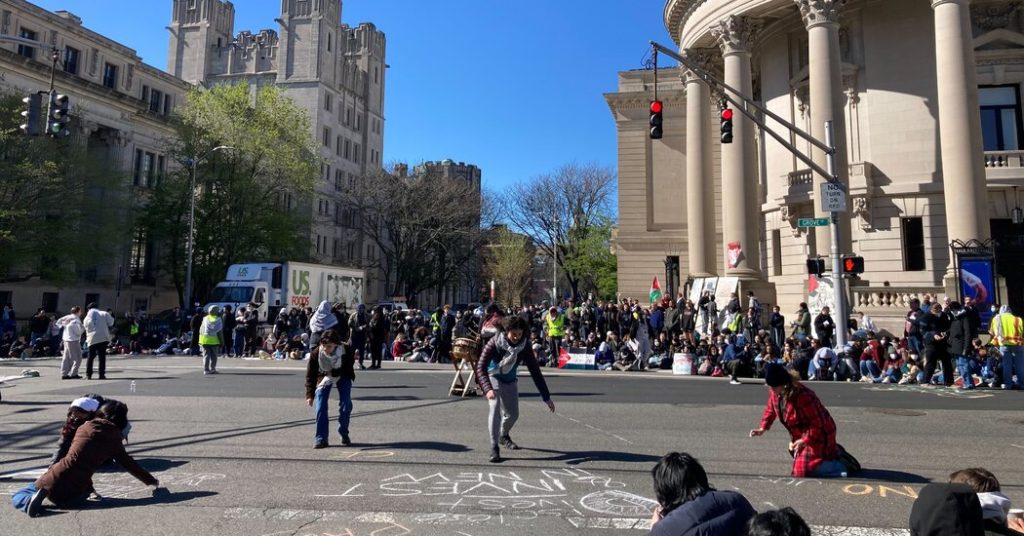Pro-Palestinian protests at Yale University led to the arrest of at least 47 individuals on Monday. The protests were sparked by student-led demonstrations that had previously disrupted Columbia University and other campuses. The protesters had set up an encampment at Yale’s Beinecke Plaza, demanding that the university disclose its investments in military weapons manufacturers and divest from those companies. Despite warnings from the university, the protesters refused to leave, leading to their arrest and potential disciplinary action from Yale.
Yale University had repeatedly asked the protesters to leave and offered them audiences with leading trustees in an attempt to negotiate a resolution. However, by late Sunday, it was determined that negotiations had reached an impasse. As a result, police issued 47 summonses and made arrests on Monday. The university stated that the decision to arrest individuals was made in the interest of the safety and security of the entire Yale community, as well as to ensure access to university facilities for all members of the community. Students who were arrested could face disciplinary actions from Yale, including possible suspensions.
The police action at Yale followed a similar incident at Columbia University just four days earlier, where over 100 students were arrested during pro-Palestinian demonstrations. The encampment set up by the protesters at Columbia led to their arrests, highlighting a growing trend of student activism on college campuses. The protests at Yale and Columbia are part of a larger movement calling for universities to divest from companies involved in the production of military weapons, particularly those used in conflicts in the Middle East.
The protests at Yale and Columbia are ongoing, with demonstrators continuing to push for divestment from military weapons manufacturers. The actions taken by the universities and police in response to the protests have sparked debates about free speech, activism, and the role of universities in addressing social and political issues. As the situation continues to develop, it remains to be seen how the universities will handle future protests and whether they will engage in further discussions with the protesters to address their demands.
The pro-Palestinian protests at Yale and Columbia have drawn attention to the issue of university investments in military weapons manufacturers and the broader impacts of these investments. The protests have raised questions about the ethical responsibilities of universities in relation to their financial investments and have sparked discussions about how universities can better align their investments with their values. As the protests continue, it is likely that more universities will face pressure from students and activists to divest from companies involved in the production of military weapons.
The demonstrations at Yale and Columbia are part of a broader movement advocating for social justice and human rights, particularly in relation to the Israeli-Palestinian conflict. The protests have highlighted the voices of students and activists who are calling for change and challenging institutions to take a stand on these important issues. As the protests continue to unfold, they serve as a reminder of the power of collective action and the importance of raising awareness about social justice issues on college campuses and beyond.








